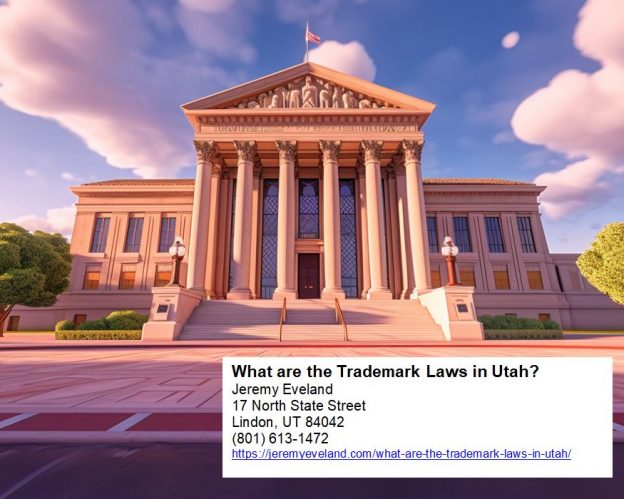-
Attorney at Law
- Introduction
- Tips for Working with a Business Lawyer in Alpine Utah
- The Cost of Hiring a Business Lawyer in Alpine Utah
- The Role of a Business Lawyer in Alpine Utah
- Real Estate Law and Business Law in Alpine Utah
- Understanding Business Contracts in Alpine Utah
- Common Human Resource Issues in Alpine Utah
- The Benefits of Working with a Business Lawyer in Alpine Utah
- Why Choose Jeremy Eveland at your Business Lawyer in Alpine Utah
“Secure Your Business with Professional Legal Services from Business Lawyer Alpine Utah”
Introduction
Welcome to Business Lawyer Alpine Utah! We are a full-service law firm dedicated to providing comprehensive legal services to businesses in the Alpine area. Our experienced attorneys have a deep understanding of the legal issues that businesses face and are committed to providing the highest quality legal advice and representation. We specialize in a wide range of business law matters, including contract drafting and review, business formation and dissolution, intellectual property protection, employment law, and more. Our attorneys are committed to providing personalized legal services tailored to the unique needs of each client. We strive to provide the highest level of legal representation and to ensure that our clients’ interests are protected. We look forward to working with you and helping you achieve your business goals.
Tips for Working with a Business Lawyer in Alpine Utah
1. Be Prepared: Before meeting with your business lawyer in Alpine Utah, it is important to be prepared. Gather all relevant documents, such as contracts, financial statements, and other legal documents. This will help your lawyer understand your business and provide the best advice.
2. Ask Questions: Don’t be afraid to ask questions. Your lawyer should be able to explain legal concepts in a way that you can understand. If you don’t understand something, ask for clarification.
3. Be Clear: When communicating with your lawyer, be clear and concise. Provide all the necessary information and be sure to explain your goals and objectives.
4. Be Open: Be open to your lawyer’s advice and suggestions. Your lawyer is there to help you make the best decisions for your business.
5. Follow Up: After meeting with your lawyer, follow up with any questions or concerns you may have. This will help ensure that your lawyer is providing the best advice and service.
By following these tips, you can ensure that you are working with a business lawyer in Alpine Utah who is knowledgeable and experienced. Your lawyer should be able to provide you with the best advice and guidance to help you achieve your business goals.
The Cost of Hiring a Business Lawyer in Alpine Utah
Hiring a business lawyer in Alpine, Utah can be a costly endeavor. The cost of a business lawyer in Alpine, Utah will depend on the complexity of the legal matter, the lawyer’s experience, and the amount of time required to resolve the issue.
The cost of a business lawyer in Alpine, Utah can range from $150 to $500 per hour. The cost of a business lawyer in Alpine, Utah may also include additional fees for filing documents, researching legal issues, and other services.
When hiring a business lawyer in Alpine, Utah, it is important to consider the lawyer’s experience and qualifications. A lawyer with experience in business law will be able to provide more comprehensive legal advice and representation. It is also important to consider the lawyer’s reputation and track record.
It is also important to consider the lawyer’s availability. A lawyer who is available to meet with clients on a regular basis is more likely to provide timely and effective legal advice.
Finally, it is important to consider the lawyer’s fees. A lawyer who charges a flat fee for services may be more cost-effective than a lawyer who charges an hourly rate.
Hiring a business lawyer in Alpine, Utah can be a costly endeavor, but it is an important investment in the success of your business. A qualified business lawyer can provide invaluable legal advice and representation, helping to ensure the success of your business.
The Role of a Business Lawyer in Alpine Utah
A business lawyer in Alpine Utah plays an important role in helping businesses succeed. Business lawyers provide legal advice and services to businesses of all sizes, from small startups to large corporations. They help businesses navigate the complex legal landscape and ensure that their operations are compliant with applicable laws and regulations.
Business lawyers in Alpine Utah provide a wide range of services to their clients. They can help businesses draft contracts, review and negotiate agreements, and provide advice on corporate governance and compliance. They can also help businesses with intellectual property protection, such as trademarks and copyrights. Business lawyers can also assist with dispute resolution, including litigation and arbitration.
Business lawyers in Alpine Utah also provide advice on tax matters. They can help businesses understand their tax obligations and ensure that they are in compliance with applicable laws. They can also help businesses with tax planning and structuring to minimize their tax liability.
Business lawyers in Alpine Utah can also provide advice on mergers and acquisitions. They can help businesses evaluate potential acquisitions and advise on the legal and financial implications of such transactions. They can also help businesses negotiate the terms of the transaction and ensure that the deal is structured in a way that is beneficial to the business.
Finally, business lawyers in Alpine Utah can provide advice on employment law matters. They can help businesses draft employment contracts, review and negotiate employment agreements, and provide advice on compliance with applicable laws. They can also help businesses with dispute resolution, including litigation and arbitration.
Business lawyers in Alpine Utah play an important role in helping businesses succeed. They provide legal advice and services to businesses of all sizes, from small startups to large corporations. They help businesses navigate the complex legal landscape and ensure that their operations are compliant with applicable laws and regulations. They can also provide advice on tax matters, mergers and acquisitions, and employment law matters.
Real Estate Law and Business Law in Alpine Utah
Alpine, Utah is a small city located in the Wasatch Mountains, just east of Salt Lake City. It is a popular destination for outdoor recreation, and is home to a growing population of businesses and residents. As such, it is important for those living and working in Alpine to understand the laws that govern real estate and business transactions.
Real Estate Law in Alpine
Real Estate Law in Alpine is governed by the Utah Code, which is the state’s official compilation of laws. The Utah Code covers a wide range of topics related to real estate, including contracts, leases, mortgages, title transfers, and zoning regulations. It is important for those buying or selling property in Alpine to understand the laws that apply to their transaction.
The Utah Code also outlines the process for filing a complaint against a real estate agent or broker. Complaints can be filed with the Utah Division of Real Estate, which is responsible for regulating the real estate industry in the state.
Business Law in Alpine
Business Law in Alpine is also governed by the Utah Code. This includes laws related to business formation, taxation, contracts, and employment. It is important for business owners in Alpine to understand the laws that apply to their business, as failure to comply with the law can result in significant penalties.
The Utah Code also outlines the process for filing a complaint against a business. Complaints can be filed with the Utah Division of Consumer Protection, which is responsible for regulating businesses in the state.
In addition to the Utah Code, businesses in Alpine must also comply with local ordinances. These ordinances can vary from city to city, so it is important for business owners to familiarize themselves with the laws that apply to their business.
Conclusion
Real estate and business law in Alpine, Utah are governed by the Utah Code and local ordinances. It is important for those living and working in Alpine to understand the laws that apply to their transactions, as failure to comply with the law can result in significant penalties.
Understanding Business Contracts in Alpine Utah
Business contracts are an important part of any business transaction in Alpine, Utah. A contract is a legally binding agreement between two or more parties that outlines the terms and conditions of a particular transaction. Contracts are used to protect the interests of all parties involved and to ensure that all parties understand their rights and obligations.
When entering into a business contract in Alpine, Utah, it is important to understand the legal implications of the agreement. All parties should be aware of the terms and conditions of the contract, as well as any applicable laws or regulations. It is also important to ensure that all parties understand the consequences of breaching the contract.
When drafting a business contract in Alpine, Utah, it is important to include all relevant information. This includes the names of all parties involved, the purpose of the contract, the terms and conditions of the agreement, and any applicable laws or regulations. It is also important to include a clause that outlines the consequences of breaching the contract.
It is also important to ensure that all parties understand the contract before signing it. All parties should read the contract carefully and ask questions if they do not understand any of the terms or conditions. It is also important to have the contract reviewed by a qualified attorney to ensure that all parties understand their rights and obligations.
Finally, it is important to keep a copy of the contract for future reference. This will help ensure that all parties understand their rights and obligations and that the contract is enforced if necessary.
Common Human Resource Issues in Alpine Utah
Alpine, Utah is a small city located in the Wasatch Front region of the state. As with any city, Alpine has its own unique set of human resource issues. These issues can range from recruitment and retention to employee relations and compensation.
Recruitment and Retention: Alpine is a small city with a limited population, making it difficult to find qualified candidates for open positions. Additionally, the city’s low unemployment rate means that there is a lot of competition for available jobs. To address these issues, employers in Alpine should focus on creating attractive job postings and offering competitive salaries and benefits.
Employee Relations: Alpine is a small city, and many of its residents have close relationships with each other. This can lead to issues with employee relations, as employees may be more likely to gossip or spread rumors. To address this, employers should focus on creating a positive work environment and encouraging open communication between employees.
Compensation: Alpine is a small city, and many of its employers are small businesses. This can lead to issues with compensation, as employers may not be able to offer competitive salaries or benefits. To address this, employers should focus on creating attractive compensation packages that include competitive salaries, bonuses, and benefits.
Overall, Alpine has its own unique set of human resource issues. To address these issues, employers should focus on creating attractive job postings, creating a positive work environment, and offering competitive salaries and benefits.
The Benefits of Working with a Business Lawyer in Alpine Utah
Working with a business lawyer in Alpine Utah can be a great asset to any business. A business lawyer can provide invaluable advice and guidance on a variety of legal matters, from contract negotiations to dispute resolution. Here are some of the benefits of working with a business lawyer in Alpine Utah.
1. Expertise: Business lawyers in Alpine Utah have a wealth of experience and knowledge in the field of business law. They can provide advice on a wide range of legal matters, from contract negotiations to dispute resolution. They can also help you understand the legal implications of any decisions you make, ensuring that your business is compliant with all applicable laws.
2. Cost Savings: Working with a business lawyer in Alpine Utah can save you money in the long run. By having a lawyer on your side, you can avoid costly legal mistakes and disputes. This can save you time and money in the long run.
3. Access to Resources: Business lawyers in Alpine Utah have access to a wide range of resources, including legal databases, research materials, and other resources. This can help you make informed decisions and ensure that your business is compliant with all applicable laws.
4. Professional Representation: Working with a business lawyer in Alpine Utah can provide you with professional representation in court. This can help you protect your rights and interests in any legal proceedings.
5. Peace of Mind: Working with a business lawyer in Alpine Utah can provide you with peace of mind. Knowing that you have an experienced professional on your side can help you feel more secure and confident in your business decisions.
Working with a business lawyer in Alpine Utah can be a great asset to any business. A business lawyer can provide invaluable advice and guidance on a variety of legal matters, from contract negotiations to dispute resolution. By having a lawyer on your side, you can save time and money in the long run, access a wide range of resources, and have professional representation in court. Working with a business lawyer in Alpine Utah can provide you with peace of mind and help you make informed decisions.
Why Choose Jeremy Eveland at your Business Lawyer in Alpine Utah
Jeremy Eveland is an experienced business lawyer in Alpine, Utah who is dedicated to providing the highest quality legal services to his clients. He has extensive experience in business law, including contract drafting and negotiation, corporate formation and governance, and dispute resolution. He is committed to providing personalized legal advice and representation tailored to the specific needs of each client.
Jeremy Eveland has a long history of success in business law. He has represented clients in a wide variety of business matters, including contract disputes, corporate formation and governance, and intellectual property protection. He has also successfully represented clients in litigation, arbitration, and mediation. He is well-versed in the laws and regulations that govern businesses in Utah, and he is committed to providing the best possible legal advice and representation to his clients.
Jeremy Eveland is a respected business lawyer in Alpine, Utah. He is a member of the Utah State Bar Association. He is committed to providing the highest quality legal services to his clients. He is dedicated to providing personalized legal advice and representation tailored to the specific needs of each client. He is knowledgeable and experienced in business law, and he is committed to providing the best possible legal advice and representation to his clients. He is an excellent choice for any business lawyer in Alpine, Utah. He may be able to help you.
Areas We Serve
We serve individuals and businesses in the following locations:
Salt Lake City Utah
West Valley City Utah
Provo Utah
West Jordan Utah
Orem Utah
Sandy Utah
Ogden Utah
St. George Utah
Layton Utah
South Jordan Utah
Lehi Utah
Millcreek Utah
Taylorsville Utah
Logan Utah
Murray Utah
Draper Utah
Bountiful Utah
Riverton Utah
Herriman Utah
Spanish Fork Utah
Roy Utah
Pleasant Grove Utah
Kearns Utah
Tooele Utah
Cottonwood Heights Utah
Midvale Utah
Springville Utah
Eagle Mountain Utah
Cedar City Utah
Kaysville Utah
Clearfield Utah
Holladay Utah
American Fork Utah
Syracuse Utah
Saratoga Springs Utah
Magna Utah
Washington Utah
South Salt Lake Utah
Farmington Utah
Clinton Utah
North Salt Lake Utah
Payson Utah
North Ogden Utah
Brigham City Utah
Highland Utah
Centerville Utah
Hurricane Utah
South Ogden Utah
Heber Utah
West Haven Utah
Bluffdale Utah
Santaquin Utah
Smithfield Utah
Woods Cross Utah
Grantsville Utah
Lindon Utah
North Logan Utah
West Point Utah
Vernal Utah
Alpine Utah
Cedar Hills Utah
Pleasant View Utah
Mapleton Utah
Stansbury Par Utah
Washington Terrace Utah
Riverdale Utah
Hooper Utah
Tremonton Utah
Ivins Utah
Park City Utah
Price Utah
Hyrum Utah
Summit Park Utah
Salem Utah
Richfield Utah
Santa Clara Utah
Providence Utah
South Weber Utah
Vineyard Utah
Ephraim Utah
Roosevelt Utah
Farr West Utah
Plain City Utah
Nibley Utah
Enoch Utah
Harrisville Utah
Snyderville Utah
Fruit Heights Utah
Nephi Utah
White City Utah
West Bountiful Utah
Sunset Utah
Moab Utah
Midway Utah
Perry Utah
Kanab Utah
Hyde Park Utah
Silver Summit Utah
La Verkin Utah
Morgan Utah
Alpine UT Business Lawyer Consultation
When you need help from an attorney for business in Alpine, call Jeremy D. Eveland, MBA, JD (801) 613-1472 for a consultation.
Jeremy Eveland
17 North State Street
Lindon UT 84042
(801) 613-1472
Related Posts
Mastering Business Law: Key Essentials For Success
Business Lawyer Centerville Utah
Shareholder Agreements in Utah
Business Lawyer Hurricane Utah
Business Lawyer South Ogden Utah
Last Will and Testament Lawyer
Business Lawyer Heber City Utah
Business Lawyer Hurricane Utah
Business Lawyer West Haven Utah
Do I Need A License To Start A Business?
Business Lawyer Bluffdale Utah
Business Lawyer Santaquin Utah
Legal Implications of Cryptocurrency in Business Transactions
Business Lawyer Smithfield Utah
Structuring A Flow Through Entity
Business Lawyer Woods Cross Utah
Business Lawyer Grantsville Utah
Structuring Turn Around Investments
Business Lawyer North Logan Utah
How Many Types of Business Law Are There?

















